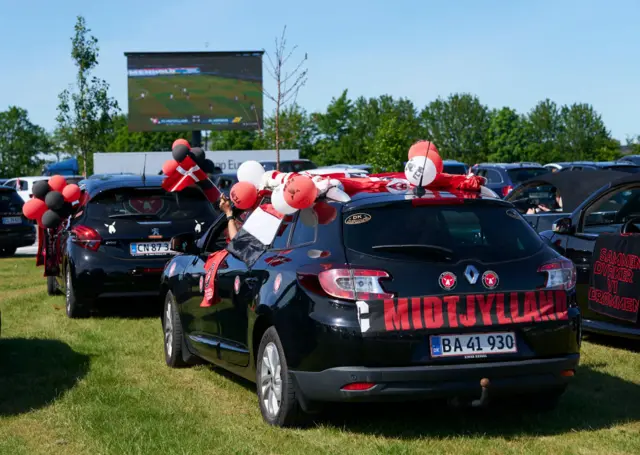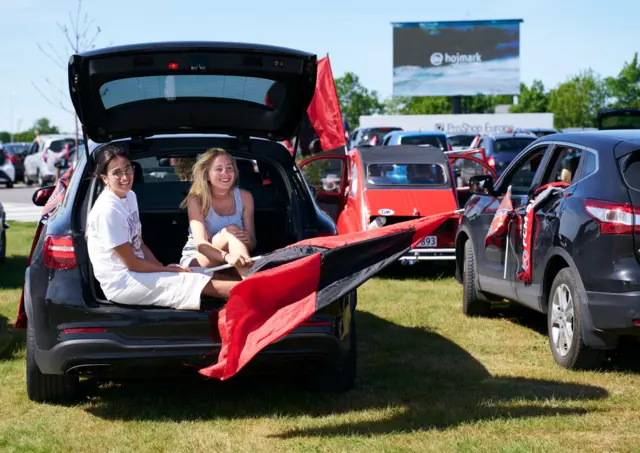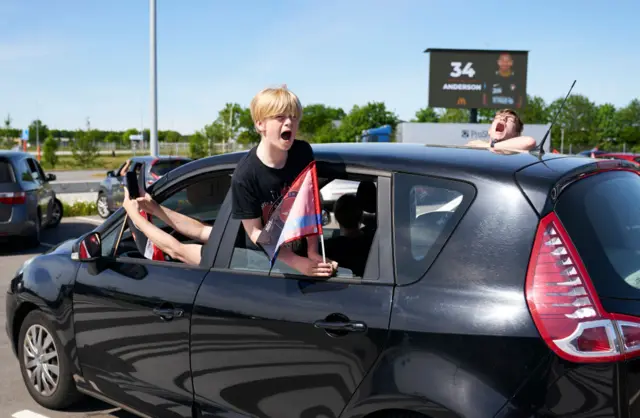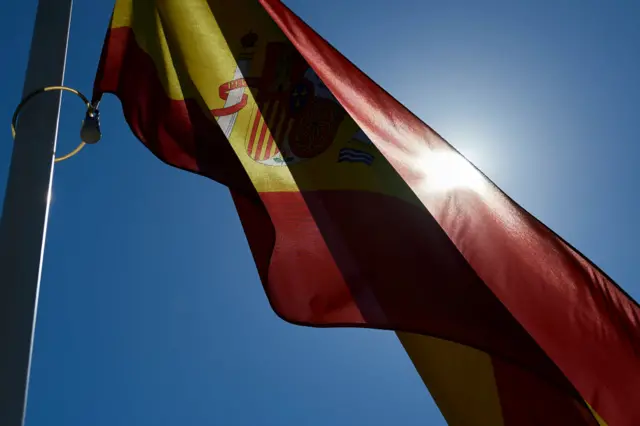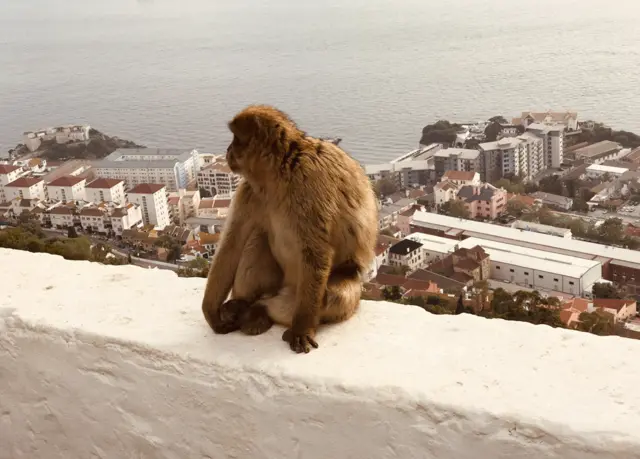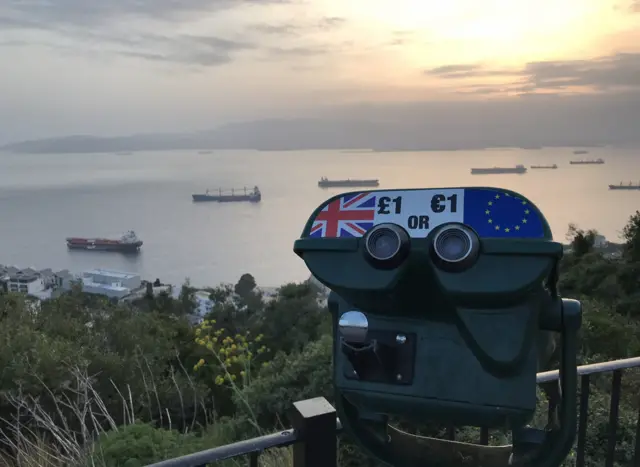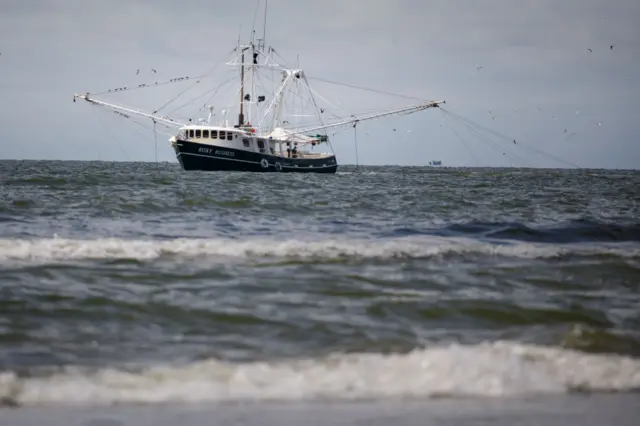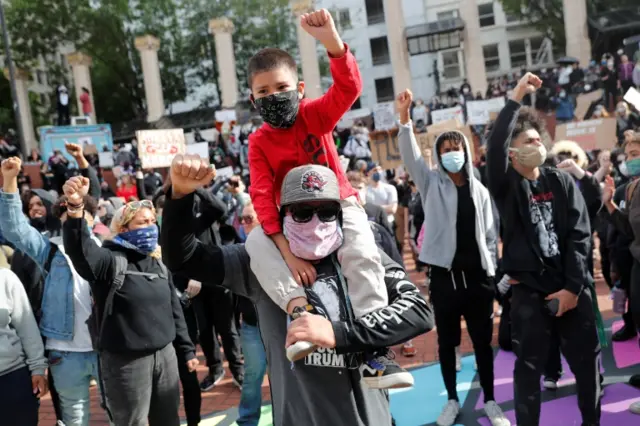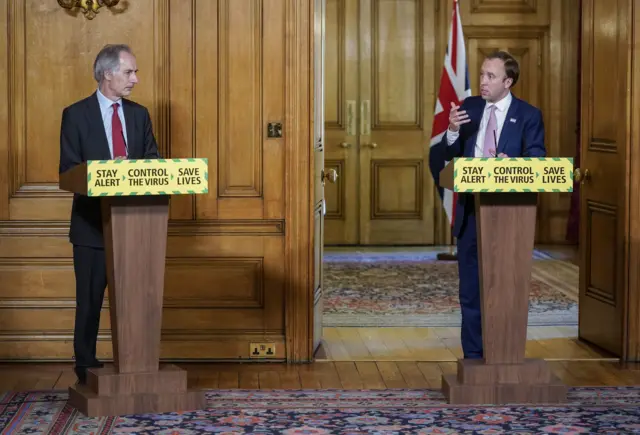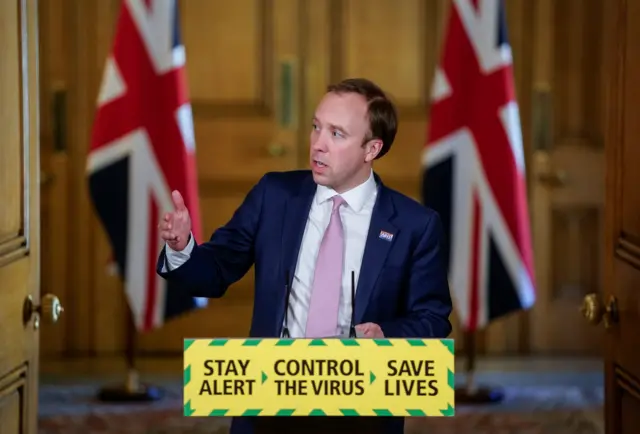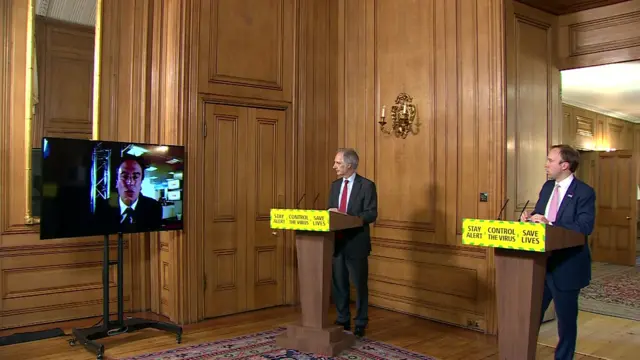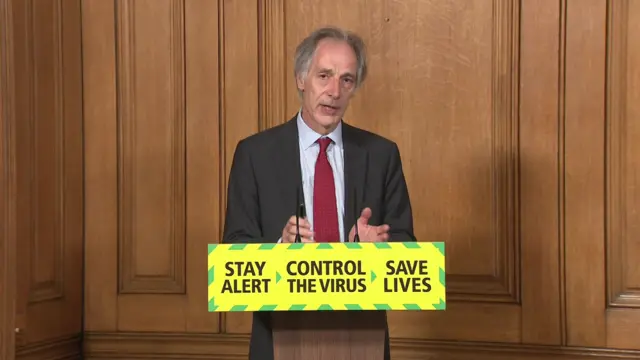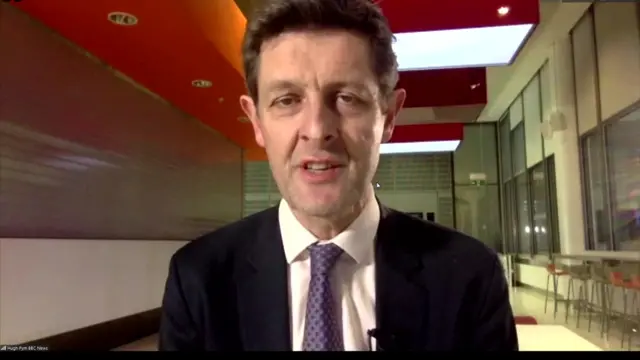Greece's schools and some hotels reopenpublished at 19:24 BST 1 June 2020
Kostas Koukoumakas
Athens, Greece
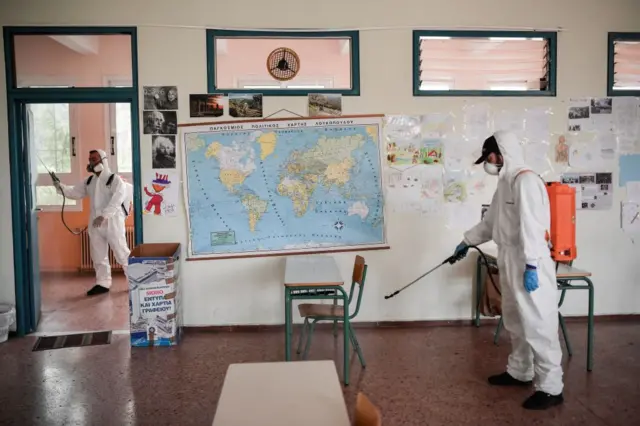 Image source, Getty Images
Image source, Getty ImagesNurseries and primary schools in Greece were disinfected before re-opening on Monday
Primary schools and kindergartens reopened here on Monday, with a restriction in place of 15 students per classroom. It is part of the latest easing of the coronavirus restrictions that were imposed in March.
However, not all children came back to school. Many parents decided to keep their children at home, partly because the academic year ends on 26 June and most pupils have no exams ahead.
In addition to schools, those hotels that operate all year round also reopened today to Greeks. Seasonal hotels will follow by opening to foreign visitors on 15 June. People working in the tourism industry hope the summer season can still be saved, although most potential visitors have so far been calling just to find out what the conditions will be like when they do finally return. A 20-page directive issued by the government covers how to train staff to recognise possible coronavirus symptoms and how to handle cleaning of rooms and serving guests.
Some 20 open-air cinemas were due to restart today in Athens, but the bad weather seems to have put a stop to this for now. The all-male monastic community of Mount Athos in northern Greece also opened its gates for the first time since the outbreak of Covid-19, providing special permits to visitors.
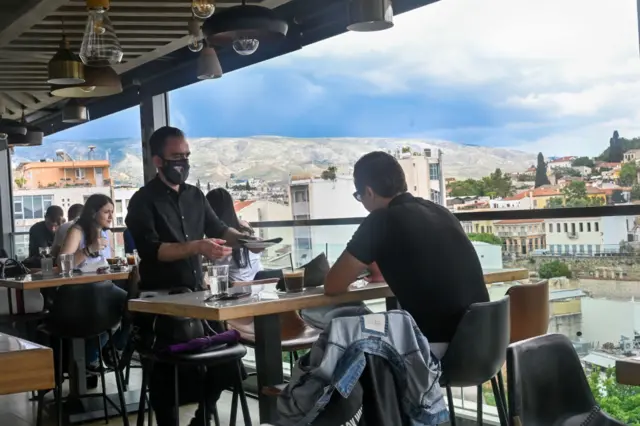 Image source, Getty Images
Image source, Getty ImagesGreece's valuable tourism industry hopes it can still have a summer season
